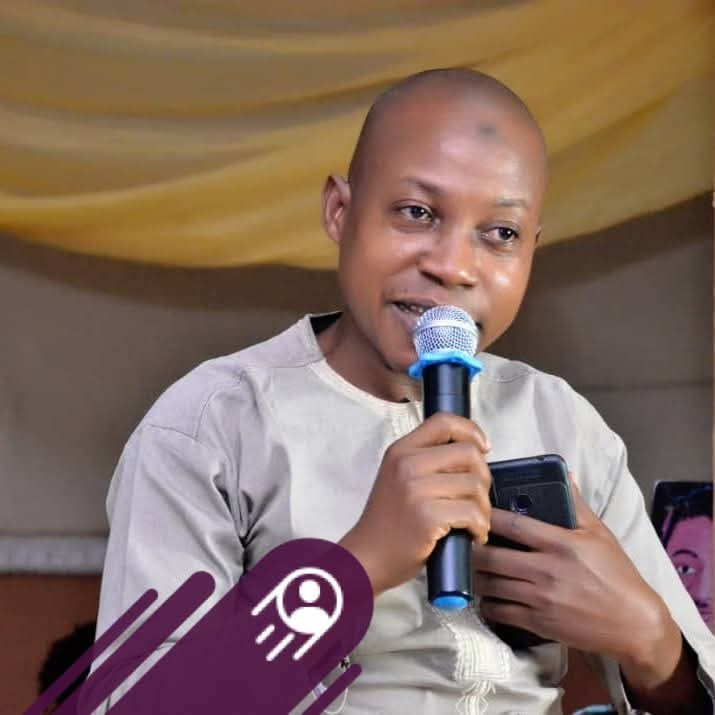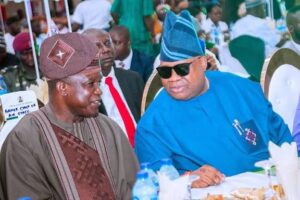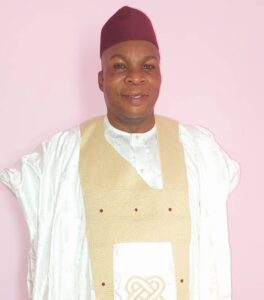
By Lateef Agboola
Cross Carpeting doesn’t start now, it’s been on since Pre-/Post-independwnce era
On the brouhaha from left, right and virtually all quarters over the planned defection of Osun State Governor to the APC, most especially, those who are challenging the Progressive ideology of President Bola Tinubu, in as much as I’m not his media aide, I’m not qualified to speak for him, but I have every right to put the record straight.
The Subject Matter:
In politics, progressives are individuals who advocate for social reform and believe that the government should play an active role in addressing social issues and promoting the well-being of citizens. They typically favour policies that aim to create a more just and equitable society, often challenging existing social norms and power structures.
Here’s a more detailed breakdown:
Social Reform:
Progressives believe that society can be improved through deliberate and planned changes rather than relying solely on tradition or individual effort.
Government Intervention:
They generally support government action to address social problems like poverty, inequality, and lack of access to healthcare or education.
Challenging the Status Quo:
Progressives often question established norms and power structures, advocating for changes that benefit marginalized groups or address systemic inequalities.
Emphasis on Equality:
A key aspect of progressivism is the pursuit of greater social, economic, and political equality.
Examples of Progressive Policies:
This could include policies like universal healthcare, environmental protection, campaign finance reform, and stronger worker protections.
Progressive Era:
The term “progressive” is also associated with a specific historical period in the United States (roughly 1890-1920), where a movement arose to address issues like corruption, poverty, and the power of monopolies
Progressivism vs. Liberalism:
While progressivism shares some common ground with liberalism, it often involves a more active role for government in social and economic matters than traditional liberalism.
Conservatism is a cultural, social, and political philosophy and ideology that seeks to promote and preserve traditional institutions, customs, and values. The central tenets of conservatism may vary in relation to the culture and civilization in which it appears.
Conservatives believe in preserving traditional values and maintaining the status quo. They believe in limited government intervention and believe that individuals should have the freedom to make their own choices and live their lives as they see fit. Additionally, conservatives place a strong emphasis on individual responsibility and believe that people should be held accountable for their actions.
Some of the key conservative values include:
Limited government intervention
Free market capitalism
Personal responsibility
Strong national defence
Traditional family values
Limited social welfare programs
Now, to the current issue:
One, Governor Ademola Adeleke decamped to the APC in 2014, when his Late brother, Senator Isiaka Adetunji Adeleke Serubawon left the PDP to join the “Progressives”. Don’t forget that Late Adeleke was a Governor under Social Democratic Party, SDP, during the aborted 3rd Republic. He later contested Governorhip election under the All People’s Party, APP, in 1999, and later joined the PDP.
Two, Chief Sunday Michael Afolabi, the deputy Governor to Late Chief Bola Ige in the old Oyo State, left the Unity Party of Nigeria, UPN to join the National Party of Nigeria, NPN (egbe Demon) when he fell out with his principal.
Three, Late Samuel Ladoke Akintola left the Action Group, AG to join the Northern People’s Congress, NPC, the then ruling party at the federal level, when he had issues with his principal, Late Chief Obafemi Awolowo in the old Western Region.
Four, Otunba Christopher Iyiola Omisore defected to PDP from Alliance for Democracy, AD, due to the crisis in his former party, as a result of unresolved crisis between him and his boss, Governor Adebisi Akande.
Five, Senator Musiliu Olatunde Obanikoro decamped from AD to PDP under President Olusegun Obasanjo (I wasn’t sure and I’m still not sure, whether there was any crisis in Lagos AD then).
Of a fact, Late Chief Bola Ige served as the Minister of Power and later, Justice, under the PDP administration – the party he abandoned at the inception because of some “unprogressive faces”, while the daughter of Late Pa Abraham Adesanya equally served in the same administration, under “the Government of National Unity”
The summary of it all is that, it hasn’t just started now, it’s been long since defection has been happening, most especially from the “Progressives” to “Conservatives”.
My Take: In fact, there are some politicians who are in the Progressives fold, and didn’t decamp from anywhere, but their progressivism is disputable and challengeable. To me, it’s all about interest because of how the Nigerian state was wired.
At this juncture, let me ask you, what’s the Manifestoes of the APC across Nigeria since Buhari era till now? Whereas, in those days, AG and UPN had their cardinal programmes.
Summary: Politics of ideology is dieing with political interests.
God bless the Federal Republic of Nigeria
Lateef Agboola is a Journalist, Musician, Script Writer, Political Analyst and Media Consultant based in Osogbo, Osun State. Southwest Nigeria



![[OPINION] Hon Omituntun: Redefining Grassroots Leadership In Offa By Abdulrahman Bashir Kehinde Leadership is not measured by promises, but by the tangible impact it makes on the lives of the people. In this regard, the Executive Chairman of Offa Local Government, Hon. Suleiman Olatunji Omituntun, continues to distinguish himself as a leader whose actions speak louder than words. Through visionary initiatives and people centered projects, Hon. Omituntun has redefined grassroots governance. His interventions in education, social welfare, youth empowerment, and community development have not only uplifted lives but also rekindled hope in inclusive and responsive leadership. What makes his governance style truly remarkable is his deliberate commitment to listening to the people and responding to their needs. At a time when many public officials appear disconnected from the grassroots, Hon. Omituntun has demonstrated that governance is most effective when rooted in empathy, accessibility, and accountability. Within just 12 months in office, Hon. Omituntun has proven his capability beyond doubt. His leadership is building a legacy that goes beyond physical projects it is nurturing trust, inspiring civic participation, and laying a solid foundation for sustainable development. Indeed, he exemplifies the truth that progress at the local government level has the power to transform entire communities. As responsible citizens, we must not only commend Hon. Suleiman Olatunji Omituntun for his people oriented leadership but also rally behind his vision, ensuring that Offa Local Government remains a beacon of purposeful governance for generations to come. Abdulrahman Bashir Kehinde writes from Osolo/Akosin, Shawo Central, Offa.](https://newsbulletin.com.ng/wp-content/uploads/2025/09/1757692107240-214x300.jpg)





